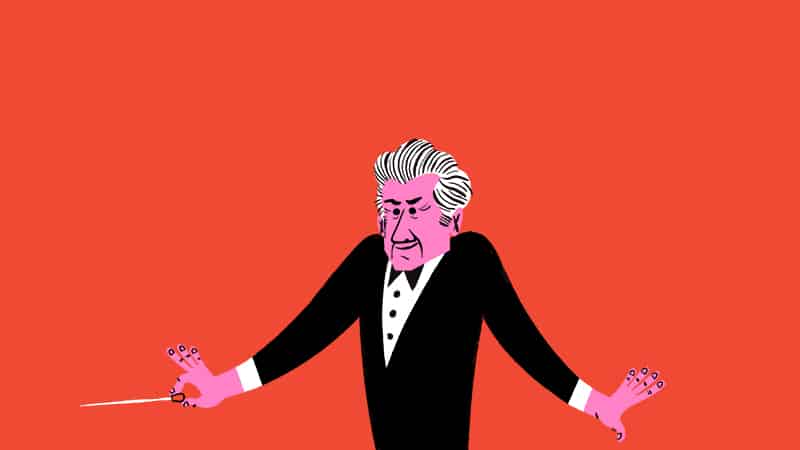Leonard Bernstein (25 August 1918 – 14 October 1990) was a multifaceted American figure in the world of music and culture. He held roles as a conductor, composer, pianist, music educator, author, and humanitarian. His influence reached far and wide, and he is widely regarded as one of the preeminent conductors of his era. Notably, Bernstein holds the distinction of being the first American conductor to attain international acclaim. Music critic Donal Henahan aptly described Bernstein as “one of the most prodigiously talented and successful musicians in American history.”
Bernstein’s accolades and achievements are a testament to his remarkable impact on the arts. He secured seven Emmy Awards, two Tony Awards, and an impressive 16 Grammy Awards, which included the prestigious Lifetime Achievement Award. In recognition of his contributions, he was also honored with the Kennedy Center Honor.
Early Life and Family
Born as Louis Bernstein in Lawrence, Massachusetts, he was the child of Jewish immigrants, Jennie (née Resnick) and Samuel Joseph Bernstein. Both his parents had journeyed to the United States from Rivne, located in present-day Ukraine. Despite his grandmother’s insistence on the name Louis, Bernstein was always addressed as Leonard by his parents. He later legally changed his name to Leonard when he turned 18, shortly after his grandmother’s passing. Among his friends and acquaintances, he was fondly known as “Lenny.”
Bernstein’s journey led him to New York City after departing from Curtis. In the city, he resided in several apartments across Manhattan. To support himself, he engaged in various musical endeavors, including coaching singers, teaching piano, and providing piano accompaniment for dance classes at Carnegie Hall. He also found work transcribing jazz and pop music under the pseudonym “Lenny Amber,” with “Amber” translating to “Bernstein” in German.
The Professional Path During his time in New York, Bernstein shared living space in Greenwich Village with his friend Adolph Green, who was a member of the satirical musical ensemble The Revuers. They frequently performed at the famed jazz venue, the Village Vanguard, with Bernstein often playing the piano.
On April 21, 1942, Bernstein marked a significant milestone by performing the premiere of his inaugural published work, the Sonata for Clarinet and Piano, alongside clarinetist David Glazer at the Institute of Modern Art in Boston.
Demise and Enduring Legacy
Bernstein officially retired from conducting on October 9, 1990, and just five days later, he passed away at the age of 72 in his New York apartment at The Dakota. His death was attributed to a heart attack induced by mesothelioma, a condition exacerbated by his history of heavy smoking. His emphysema, which developed in his mid-50s due to smoking, had already taken its toll.
As Bernstein’s funeral procession traversed the streets of Manhattan, construction workers removed their hats and paid their respects, bidding farewell to “Lenny.” He was laid to rest at Green Wood Cemetery in Brooklyn, New York, next to his wife. Remarkably, he was interred with a copy of Mahler’s Fifth Symphony opened to the iconic Adagietto, placed across his heart.
In honor of his centenary on August 25, 2018, a Google Doodle commemorated Bernstein’s significant contributions. Additionally, the Skirball Cultural Center in Los Angeles curated an exhibition titled “Leonard Bernstein at 100” to celebrate his enduring legacy.

